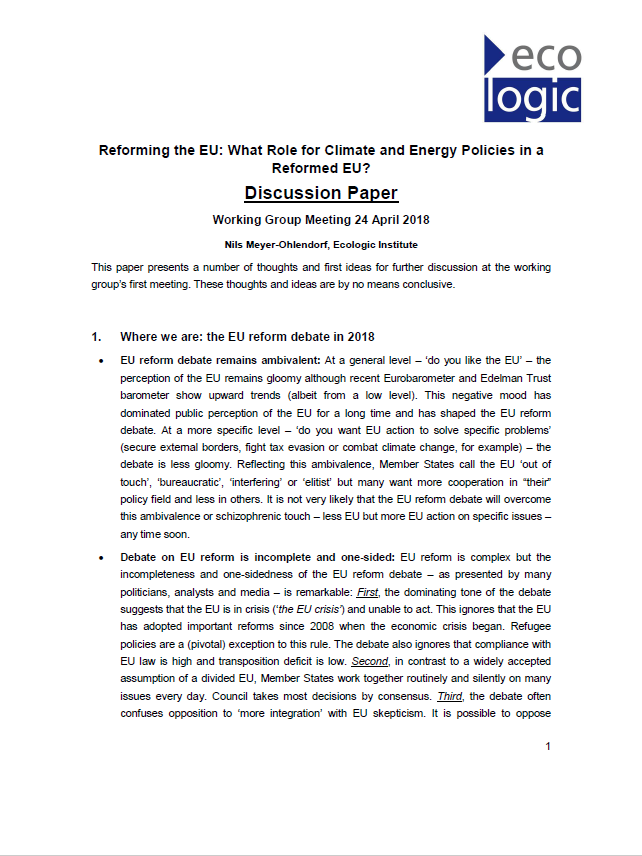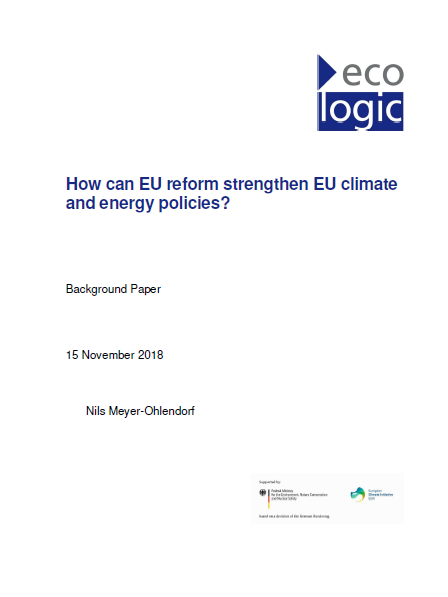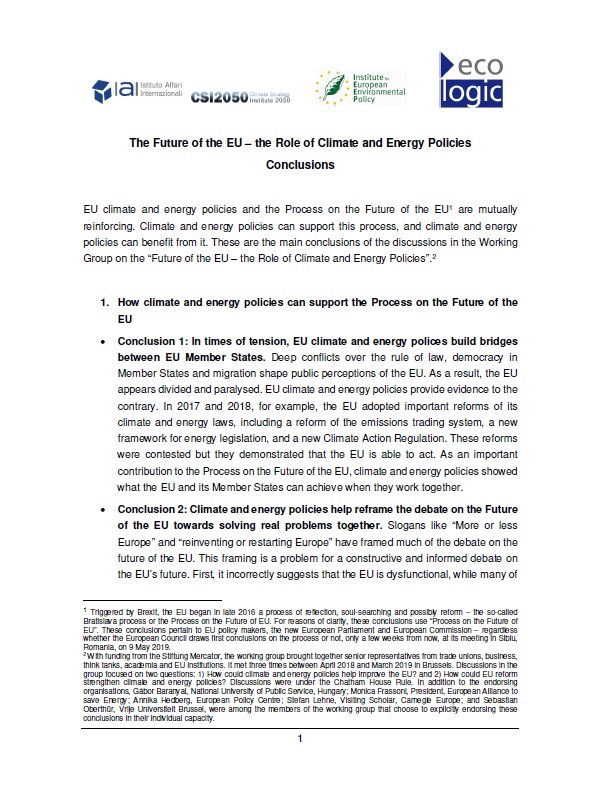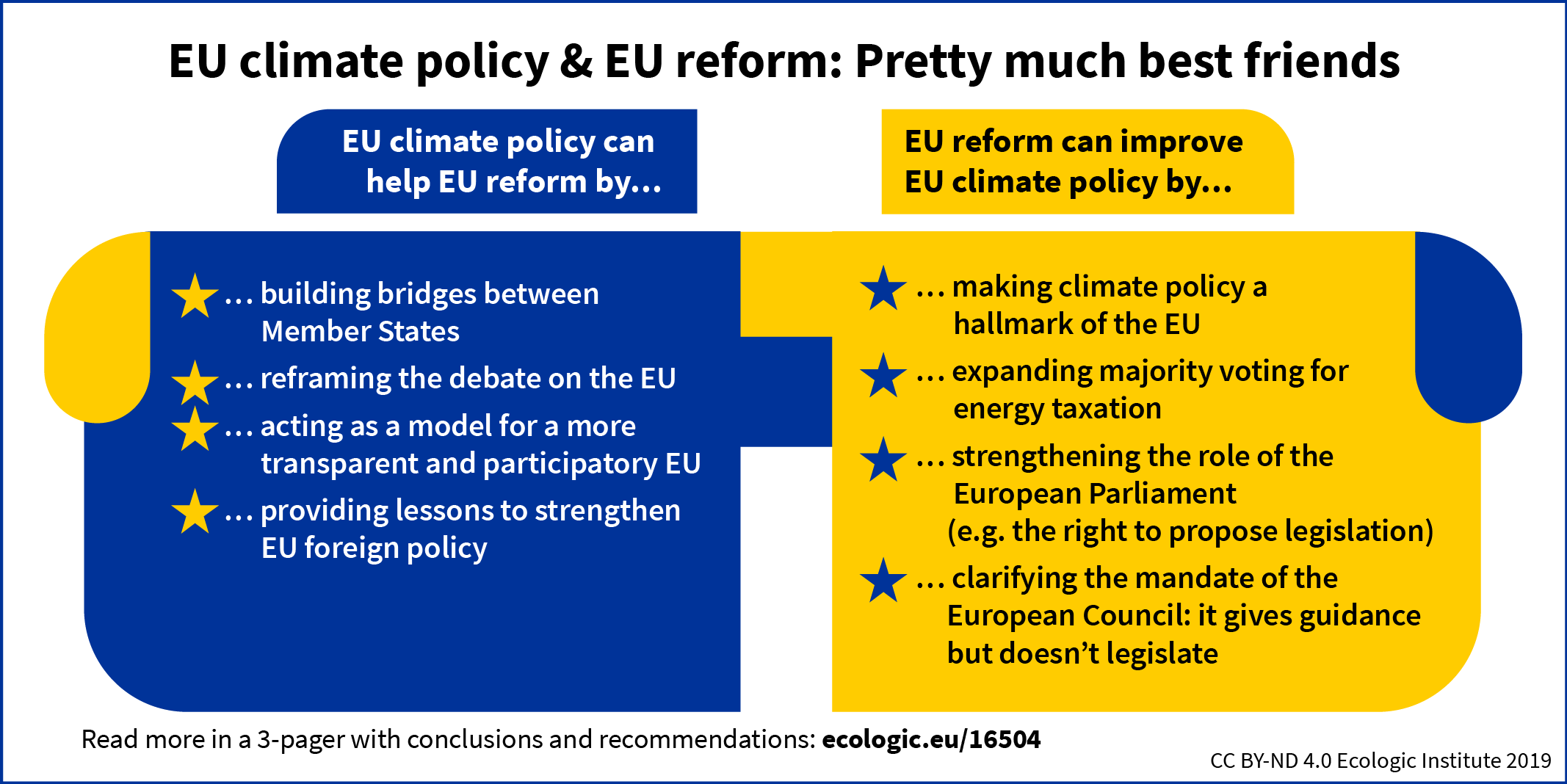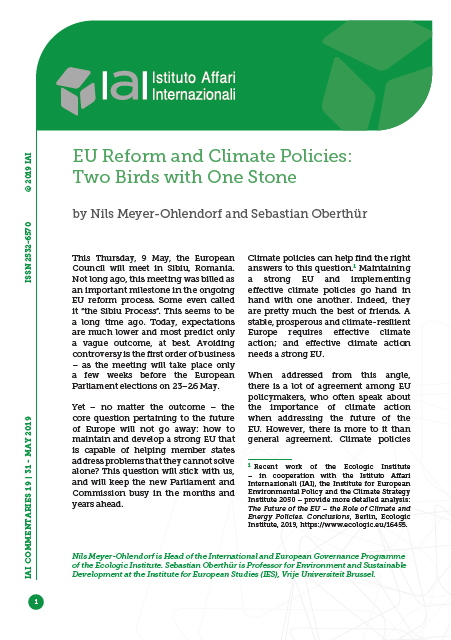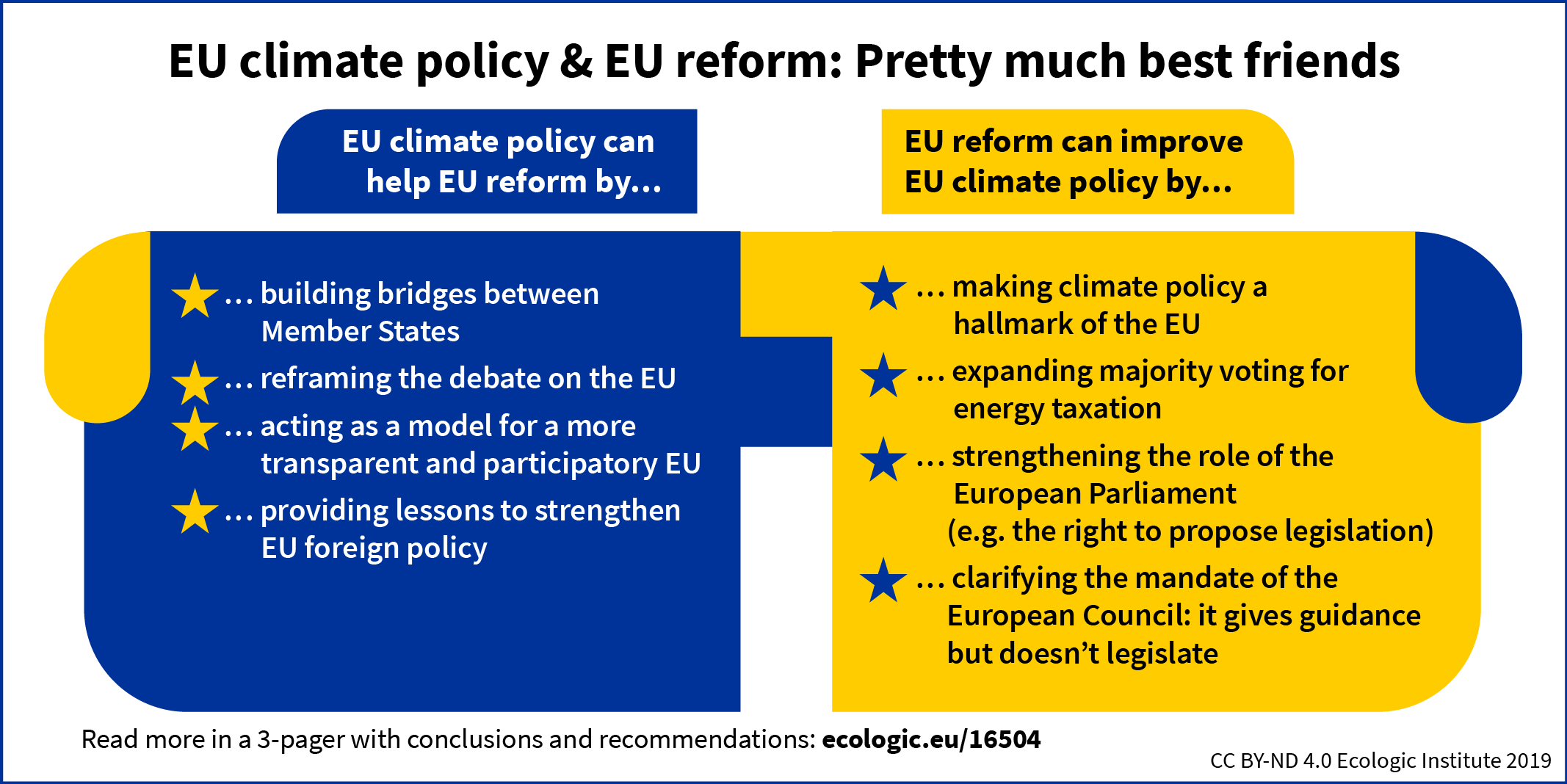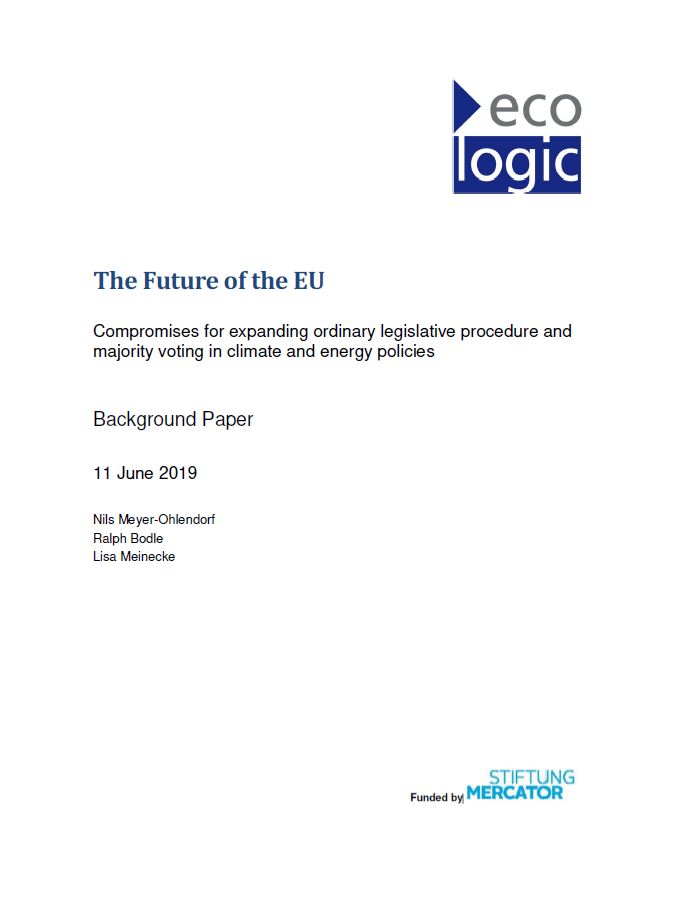Ausgelöst durch Brexit begann in der EU einen Prozess des Nachdenkens und der Selbstreflektion, der sogenannte "Bratislava-Prozess" oder "Prozess zur Zukunft Europas". EU-Institutionen, Mitgliedstaaten und Zivilgesellschaft haben eine Reihe von Beiträgen zu diesem Prozess gemacht. Dieses Papier des Ecologic Instituts diskutiert, wie die EU-Klima- und Energiepolitik den EU-Reformprozess unterstützen kann.
- Sprache
-
Englisch
- Autorenschaft
- Finanzierung
-
Stiftung Mercator, Deutschland - Jahr
- Umfang
- 15 S.
- Projekt
- Projekt-ID
- Inhaltsverzeichnis
-
Gesamtes Inhaltsverzeichnis
1 Summary
2 Introduction
3 EU climate and energy action – policies that unite and show that the EU delivers
4 Migration is a difficult starting point for EU reform: Can climate and energy policies help?
5 Effective Climate Action – an opportunity not to miss for successful EU Reform
6 Can EU climate and energy policies help formulate a (re)newed vision for the EU?
7 Can climate and energy policies help strengthen EU foreign policy?
8 Can climate and energy policies serve as a role model for a more transparent EU?
9 Can climate and energy policies serve as a role model for a more participatory EU?
10 Help clarify the mandate of the European Council - Schlüsselwörter
-
Reform, Prozess, Reformprozess, EU, Europäische UnionEuropaAnalyse
Meyer-Ohlendorf, Nils (2018). How can EU reform strengthen EU climate and energy policies?, Ecologic Institute, Berlin.
